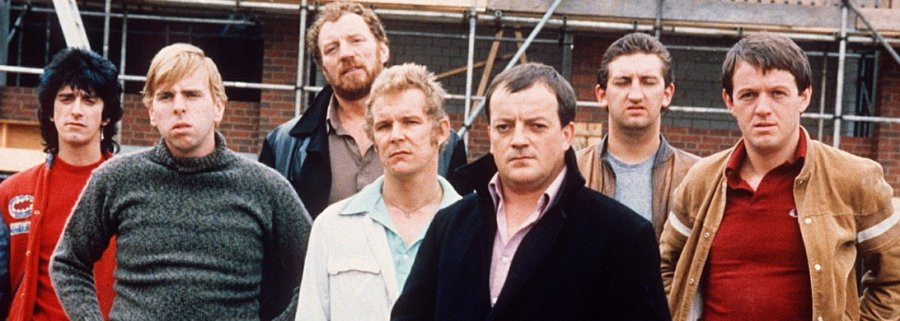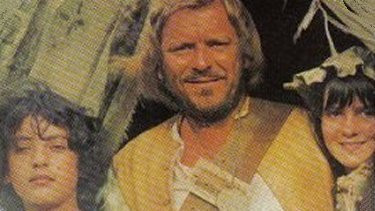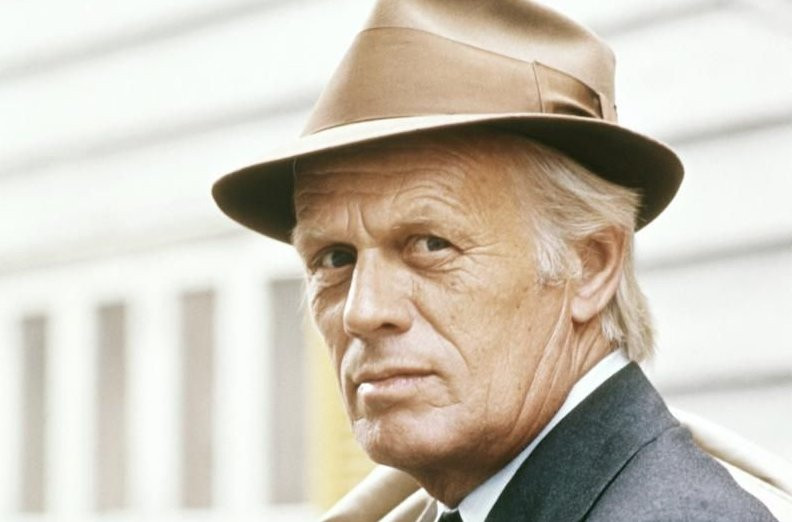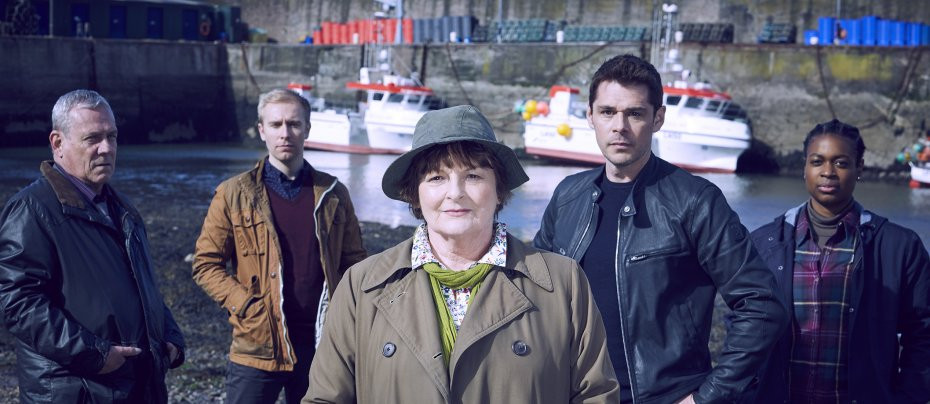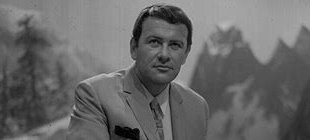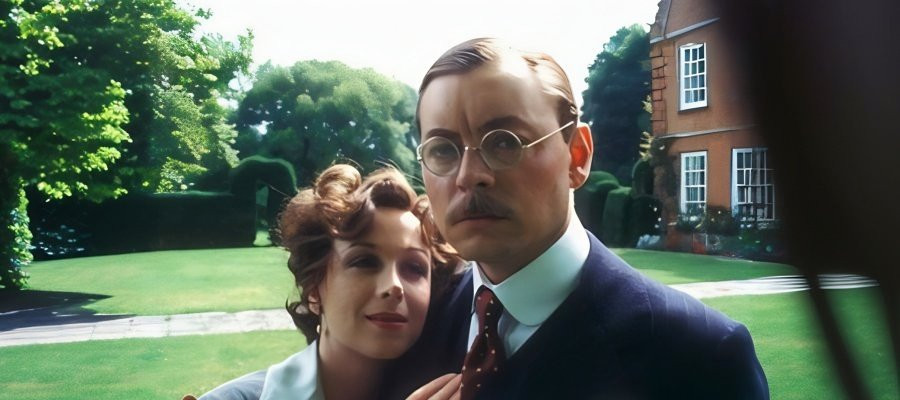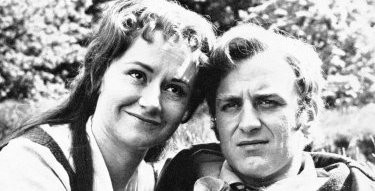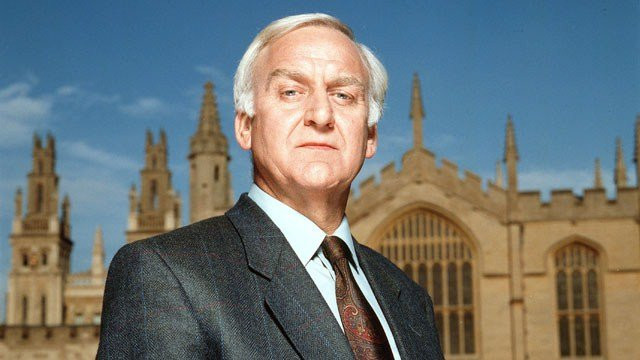
Inspector Morse
1987 - United KingdomOver thirteen years and thirty-three feature-length stories, between 1987 and 2000, British television screens have played welcoming host to arguably the world's, and certainly Britain's, finest entry in the long and distinguished history of the television/detective fiction genre.
Adapted from Colin Dexter's series of best-selling novels which began publication in 1975 with the first Inspector Morse novel, Last Bus to Woodstock, respected and innovative producer, Ted Childs, secured the screen rights for Zenith Productions, and immediately set about the difficult and exhaustive task of bringing the characters of Detective Chief Inspector Morse of the Thames Valley Police, and his long suffering, but faithful assistant, Sgt Lewis to televisual life.
The key role of Morse was assumed by an actor familiar to both the public and Child's himself, from their phenomenally successful time working together on Euston Films seminal 70's cop classic, The Sweeney. The actor was the charismatic and hugely popular John Thaw. And, as he had done so successfully with his former character of Flying Squad Inspector Jack Regan, Thaw's complex, thoughtful and sensitive characterisation of the intellectually brilliant, but socially ill-at-ease Oxford sleuth, would eventually see him craft another television icon, whose popularity was destined to eclipse even that of his earlier triumph.
With both men renowned for their mutual commitment to perfection, they successfully lobbied for the (almost unheard of in British television drama), two-hour format to be adopted for each of the stories, making each Morse production a feature film made for television, rightfully arguing that the extended format would allow full justice to be done to complexly challenging plots and richly textured characterisation, which had helped make the original source material a worldwide success. A far-sighted move that was swiftly adopted by UK production companies across the board in the years that followed, becoming a readily embraced standard template for what were perceived as prestigious drama projects. With Morse cast, the production team, working closely with original author, Colin Dexter, next turned their attention to the casting of the novel's other key character, Sgt. Robbie Lewis.
Although in Dexter's original novels Lewis is presented as a Welshman in his sixties and a grandfather, for television it was decided that a much younger actor was needed to act as a an effective counterfoil to Morse's cynical world-weariness. After long and careful thought, the role was offered to another actor already well known and liked by audiences for his portrayal of the likeable Newcastle bricklayer, Neville, in writing team Ian La Frenais' and Dick Clement's much loved comedy drama series, Auf Wiedersehen Pet.
At the time of first being offered the audition for the part, Kevin Whately did a quick research trip to a library in his native Newcastle to examine the novels. The experience hardly left the actor filled with optimism, as he recalls: "This Sergeant Lewis was 63 and I thought, 'Well, I'm not going to get this.'" The other main recurring role of Morse's no-nonsense superior, Chief Superintendent Strange, went to experienced and talented character actor, James Grout.
With the key actors in place the production proceeded forward rapidly. It was the fifth of the published Morse novels, The Dead of Jericho, which eventually had the distinction of being the adaptation that would introduce the characters to television. The result was an instant and unanimous success with both the viewing audience and critics alike.
Over the course of the ensuing thirteen years, a sublime mix of consistently outstanding acting, insightful and razor sharp quality in the writing and assured direction, ensured that a world-wide audience totalling over a billion people transformed the series into a multi award winning icon, which catapulted both the series' human stars and the hauntingly beautiful university city of Oxford to the very forefront of television consciousness. However, finally -perhaps inevitably- after a total of thirty-three investigations and eighty-one deaths (resulting in an average death rate of 2.45 per adaptation), Morse's creator himself decreed the time had come to end his greatest creation's glittering career. As Colin Dexter explained: "He (Morse) started off in his early 40's and he must be at least 70 now." He went on to elaborate thus: "Very few police officers are over their mid-fifties." And to the dismay of both the admirers of the character in both book and TV form, Morse's end was fated to be the ultimate one. Dexter again: "Right from the word go, he was drinking too much (referring to the character's enduring affinity for Real Ale) and not looking after himself very well, not spending enough time sleeping or exercising."
For John Thaw, the news that his now comfortable alter-ego was to be laid to rest initially came as a total surprise: "I couldn't believe it, but there you are," he mused philosophically in a in a Radio Times interview. "I wouldn't honestly say that I'd had enough, but I think it's rather fortuitous for everyone. I think it's a good time to go, rather than drifting on with a possibility that it doesn't get any better." Dexter himself echoed this sentiment thus: "None of us writers gets very much better as we get older. You get short of ideas; you wonder where you're going to go to next. I felt I'd said enough about the relationship between Morse and Lewis. There are only so many variants of going into a pub and saying 'I'm sorry, I can't pay for this round, Lewis.'" (A reference to perhaps the series' most constant undercurrent of humour. Morse's legendary unwillingness to buy the duo's obligatory round of drinks during the course of an investigation).
So it was on the evening of Wednesday, November 15th 2000, 13 million British television viewers tuned into the ITV network to bid a final sad farewell not only to a character who had insinuated himself into the very fabric of the nation's consciousness, but also into the small and exclusive pantheon of true television giants.
The death of Chief Inspector Endeavour Morse was as heartbreakingly sad and lonely as his fictional life had been. It also marked the end of an era in the genre of outstanding British television crime fiction. Morse's passing was, indisputably, a remorseful day for quality television lovers everywhere.
Seen this show? How do you rate it?
Seen this show? How do you rate it?
Published on December 23rd, 2018. SRH.


